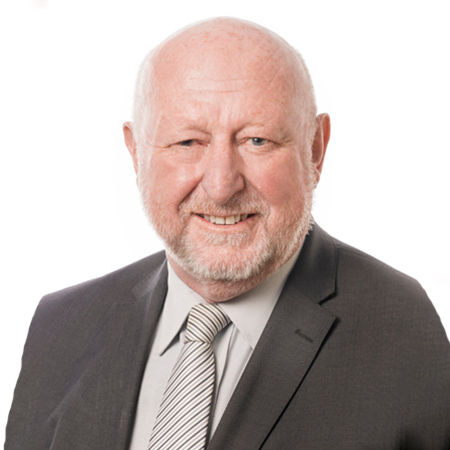In each state and territory of Australia there are court rules which govern the ability of a defendant to arrange a medical examination of a plaintiff in a medical negligence case. In New South Wales the applicable law is Rule 23.4 of the Uniform Civil Procedure Rules 2005 (UCPR), which provides:
- ‘the court may make orders for medical examination, including an order that the person concerned submit to examination by a specified medical expert at a specified time and place; and
- if the court orders that the person concerned submit to examination by a medical expert, the person must do all things reasonably requested, and answer all questions reasonably asked, by the medical expert for the purposes of the examination.’
The New South Wales Court of Appeal has been called upon to consider the application of Rule 23.4 of the UCPR in two recent matters.
In Chopra v State of New South Wales (South Western Sydney Local Health District) [2023] NSWCA 142 the plaintiff had refused to attend a medical examination arranged by the defendant.
The plaintiff was a nurse who alleged that she was assaulted by a patient while working at Blacktown Hospital. She claimed physical and psychiatric injuries, including post-traumatic stress disorder. The plaintiff relied on reports from her treating psychiatrist and an independent psychiatrist. The defendant arranged a medical examination with an independent psychiatrist and the plaintiff attended.
The defendant subsequently requested the plaintiff attend a second appointment with an independent clinical psychologist for the purpose of undergoing psychometric testing (the assessment). The plaintiff refused to attend this assessment and the defendant sought an order pursuant to Rule 23.4 of the UCPR, to compel her attendance. In opposing the application, the plaintiff led evidence from her two psychiatrists that the proposed psychometric testing would have a deleterious effect on her.
At first instance Gibb DCJ considered that the forensic investigation was warranted and ordered that the plaintiff attend the assessment.
However, The Court of Appeal held that the primary judge failed to take into account the unchallenged medical evidence that the proposed psychometric would be deleterious to the plaintiff’s psychiatric condition. In the circumstances, the Court of Appeal held that it was reasonable for the plaintiff to refuse to attend the assessment and set aside the decision of the primary judge.
In NSW v Hollingworth [2023] NSWCA 152 the plaintiff sought to impose his own conditions on the psychiatric assessment arranged by the defendant.
The disagreement arose in the context of the plaintiff refusing to be examined unless he was allowed to electronically record the interview.
The plaintiff’s claim arose in the context of claiming false imprisonment, assault and battery after being arrested and taken into custody by the police. He claimed that his pre-existing post traumatic stress disorder had been exacerbated by these events.
The plaintiff did attend that defendant’s first psychiatric examination, but the expert would not consent to the assessment being recorded and the examination was terminated after the plaintiff refused to stop the recording.
The defendant then arranged an examination with another psychiatrist (Dr Brown), who indicated that she would not consent to her examination being recorded. This was conveyed to the plaintiff who insisted that he intended to electronically record the examination. As a result, the examination with Dr Brown was cancelled and the defendant made enquiries of six other psychiatrists, all of whom refused to have their examinations recorded.
The defendant then sought an order under Rule 23.4 of UCPR requiring the plaintiff to attend examination with Dr Brown without it being electronically recorded.
In the first instance Levy DCJ rejected the defendant’s application and made orders in accordance with Schedule 7 of the UCPR, which deals with the Expert Witness Code of Conduct, including the expert’s duty to comply with the court’s directions.
Clause 5(c) of the Schedule 7 provides:
‘If directed to do so by the court, an expert must… abide in a timely way by any direction of the court.’
The primary judge made orders that the plaintiff could electronically record any examination with a psychiatrist arranged by the defendant and the psychiatrist, in accordance with the Code of Conduct, had to allow this as directed by the court.
The Court of Appeal held that Clause 5 of Schedule 7 conferred no power to the court to make such a direction to an expert witness. The Court of Appeal held that the primary judge erred in making orders including that the plaintiff had a right to electronically record any examination arranged by the defendant psychiatrist. The Court of Appeal also held that the primary judge erred in finding that the refusal to allow the plaintiff to electronically record the examination would amount to unlawful discrimination under the Disability Discrimination Act 1992 (Cth).
The Court of Appeal concluded it was appropriate for the defendant to arrange an assessment by a psychiatrist of its choice without it being conditional on the plaintiff being permitted to electronically record the examination.
On 23 August 2023 Cavanagh J referred to Chopra and several other cases in Graham v Peabody Energy Australia Pty Limited [2023] NSWSC 1087.
In Graham the plaintiff had been examined by a psychiatrist and a psychologist on behalf of the defendant. The psychologist provided an 82 page report in which he recommended that the plaintiff be referred for neuropsychological assessment. The plaintiff refused to attend such an examination, which led to the application before the Court.
The plaintiff opposed the application on the basis that:
- the examination was not reasonably necessary;
- such examination would be injurious to his health; and
- the real reason why the further examination was required was to determine whether or not he might be malingering (which was not permissible pursuant to Rowlands v State of New South Wales (2009) 74 NSWLR 715.
In rejecting the defendant’s application that the plaintiff attends for further psychological examination, Cavanagh J had regard for the significant medical evidence put forward by the plaintiff of the likely consequences of such a further examination together with doubts expressed by the plaintiff’s experts about the need and benefit of it.
Implications of these decisions
If an order is made under UCPR, r 23.4 for a plaintiff to submit to a medical examination this order overrides any right to personal liberty. By contrast, such any order does not confer a power to make an order, directed to a medical expert, as to how they are to perform their medical examination.
Both of these decisions involve the test of reasonableness, which of necessity, involves a balancing of the reasonableness of the defendant’s request as seen by it against the weight of the plaintiff’s objection. Each needs to be balanced against the other to ensure a ‘just determination of the cause as between the parties taking into account their reasonable requirements.’
In addition to medical examinations, this issue has the potential to arise in a number of other circumstances, such as:
- genetic cases where saliva or blood samples are required;
- orthopaedic cases where an x-ray is required; or
- brain injury cases where an MRI may be required, possibly under general anaesthetic.
The more invasive the investigation required, the more the court will need to be satisfied as to the reasonableness of the requirement before making such an order.
This article was written by Kylie Agland, Partner and Don Munro, Consultant.


